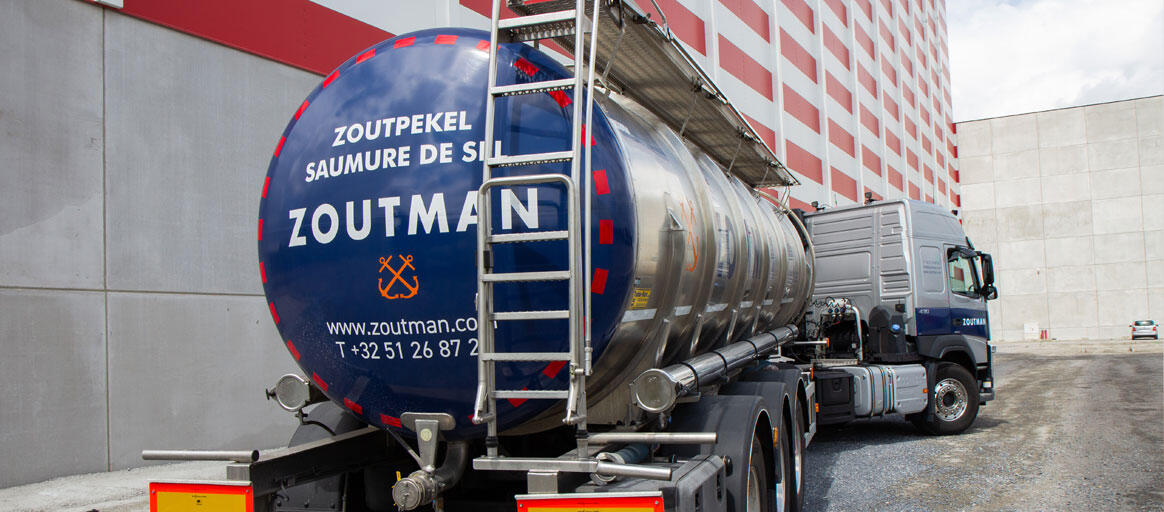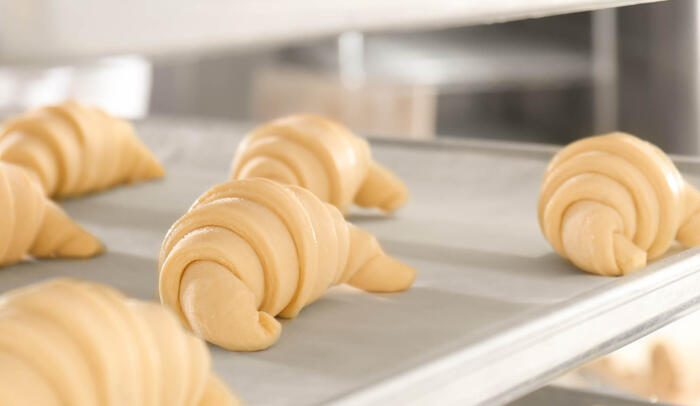Increase efficiency by working with ready-to-use brine
Anyone thinking about efficiency gains, thinks of automation and digitalisation. But did you know that you could also make significant gains by changing ingredients? By changing from salt in bags to ready-to-use brine, for example. With Marsel Liquid from Zoutman, your operators no longer need to drag heavy bags around because the ready-to-use salt brine is automatically added to the recipe. A choice which provides a great deal of added value.

Anyone ordering from Zoutman is buying a natural product with 31 times lower CO2 emissions than salt extracted from mines. After all, it requires an energy-intensive process to crystallise all that pumped-up salt. For Marsel® salt, only the power of nature is required. The sun and the wind see to it that the seawater evaporates in salt basins in a very natural and organic way.
Sales Manager Christophe Vermote: “We rinse the coarse sea salt using fresh water and break it down into a range of different grain sizes. From extra fine to extra coarse. Every grain is checked for purity to ensure high-quality sea salt which is ready for use in your production lines.”
Ready-to-use salt brine
Every year, 300,000 to 450,000 tons of salt from Zoutman lands in more than 60 countries worldwide. It is used for solutions such as salt for water softening, road salt, agricultural salt and even salt for swimming pools.
A lesser-known but even more interesting addition to the range for food companies is Marsel® Liquid, ready-to-use salt brine. This is a solution of water and salt in a stable concentration that can be used as a good base in the process. "If you use a great deal of salt in your production and your recipe includes water, this is a relatively easy way to reduce the load and increase efficiency in your processes."
From the tank to production automatically
Most companies still opt for salt in bags or make their own brine. “If just one bag has to be moved per day, that is not too bad for the backs of your operators. But as companies grow, this load also grows. It's a time-consuming and onerous task.”
Ready-to-use brine, by contrast, is stocked in a simple storage tank on your site and then transported to the various production lines by pipes. “At the right time and in the perfect quantities. It's a highly adaptable process. There is no dragging and lifting involved”, adds Vermote. “And the storage tank can be located outside as brine is frost-resistant down to -21 °C.”
Taking over stock management
The only thing the food company must invest in is a storage tank and the connection to your pipe network. “By removing the manual handling process, the investment tends to be recuperated quite quickly,” explains Vermote. Zoutman can also take on the stock management process itself, if required. “We monitor your stock 24/7 and in real-time. If the quantities of brine fall under a certain level, we come out and replenish the tank. You don’t have to do anything.”
The final advantage that Vermote explains is the versatility of the Marsel® Liquid brine. “From one tank, you can supply your production lines and your softeners.”

Why Aigremont is a satisfied customer
Margarine producer Aigremont also put this to the test and switched to salt brine. A great solution given that margarines contain an average of 20% water. "First, we thought about processing our own bulk salt via a machine into brine, but that was too complex and a labour-intensive process,” explains marketing and communication manager, Frédéric Delooz. "Zoutman has more than lived up to our high expectations," adds production manager Nicolas Henrard. "They always deliver within three days and then we can go another two weeks. Moreover, the salt concentration of the brine supplied is always 23%. So we don't have to worry about taste defects."
Aigremont uses quite a high volume of brine; around 60 tons per month. The product is not only an indispensable ingredient of margarines, it also ensures the flawless operation of water softeners. "The supply comes through the same pipe and is also automated, so we no longer have to think about refilling. There is no more waste, no more pallet management and we save lots of man hours," says Henrard.



